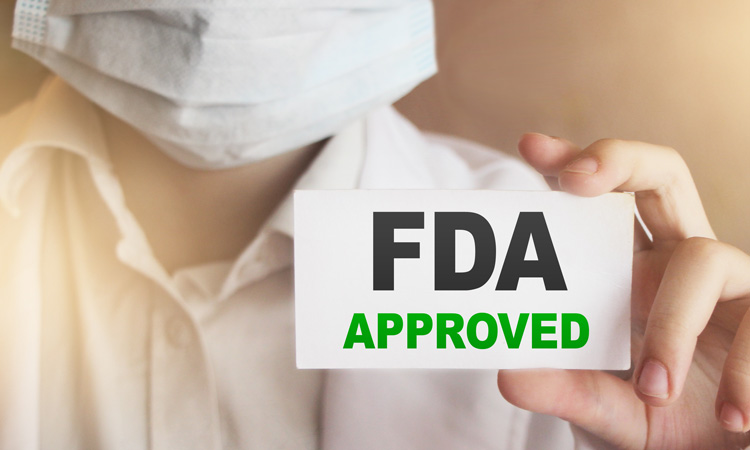FDA announces temporary food policies to cater for impact of COVID-19
- Like
- Digg
- Del
- Tumblr
- VKontakte
- Buffer
- Love This
- Odnoklassniki
- Meneame
- Blogger
- Amazon
- Yahoo Mail
- Gmail
- AOL
- Newsvine
- HackerNews
- Evernote
- MySpace
- Mail.ru
- Viadeo
- Line
- Comments
- Yummly
- SMS
- Viber
- Telegram
- Subscribe
- Skype
- Facebook Messenger
- Kakao
- LiveJournal
- Yammer
- Edgar
- Fintel
- Mix
- Instapaper
- Copy Link
Posted: 26 May 2020 | Sam Mehmet (New Food) | No comments yet
The FDA has announced a set of new extensions and temporary flexible policies to allow food businesses to continue to operate during the coronavirus pandemic, such as labelling requirements and eligibility criteria for rule exemptions.


Application period for Voluntary Qualified Importer Program
The US Food and Drug Administration (FDA) has announced that it will be extending the application period for importers to submit their notice of intent to participate and their completed application for the Voluntary Qualified Importer Program (VQIP) for the Fiscal Year 2021 benefits period.
VQIP is a voluntary fee-based programme established by the FDA Food Safety Modernization Act (FSMA) that provides expedited review and importation of human and animal foods into the United States for approved applicants who achieve and maintain a high level of control over the safety and security of their supply chains.
The application portal will remain open until 31 July 2020, after which it will close to allow time for the agency to review applications before the start of the annual benefits period that will begin on 1 October 2020.
The application period is being extended because current travel restrictions and advisories related to the COVID-19 public health emergency have hindered the ability of accredited Certification Bodies (CBs) to conduct onsite regulatory audits and issue certifications to foreign entities, which are required as part of the VQIP application.
Labelling requirements for foods for humans
FDA is issuing a guidance document to provide additional temporary flexibility in food labelling requirements to manufacturers and vending machine operators. The goal is to provide regulatory flexibility, where appropriate, to help minimise the impact of supply chain disruptions on product availability associated with the current COVID-19 pandemic.
Entitled “Temporary Policy Regarding Certain Food Labeling Requirements During the COVID-19 Public Health Emergency: Minor Formulation Changes and Vending Machines,” the guidance is one of several the FDA has issued to provide temporary flexibility to the food industry to help support the food supply chain and meet consumer demand during the pandemic.
First, the FDA is providing flexibility for manufacturers to make minor formulation changes in certain circumstances without making conforming label changes, such as making a change to product ingredients, without updating the ingredient list on the packaged food when such a minor change is made.
For purposes of this guidance, minor formulation changes should be consistent with general factors listed below, as appropriate:
- Safety: the ingredient being substituted for the labelled ingredient does not cause any adverse health effect (including food allergens, gluten, sulphites, or other foods known to cause sensitivities in some people, for example, glutamates)
- Quantity: generally present at two percent or less by weight of the finished food
- Prominence: the ingredient being omitted or substituted for the labelled ingredient is not a major ingredient in the product
- Characterising Ingredient: the ingredient being omitted or substituted for the labelled ingredient is not a characterising ingredient; for example, omitting raisins, a characterizing ingredient in raisin bread
- Claims: an omission or substitution of the ingredient does not affect any voluntary nutrient content or health claims on the label
- Nutrition/Function: an omission or substitution of the labelled ingredient does not have a significant impact on the finished product, including nutritional differences or functionality.
The guidance also provides examples of existing flexibilities in food labelling regulations so that manufacturers know these are already available.
The FDA is also providing temporary flexibility to the vending machine industry and will not object if covered operators do not meet vending machine labelling requirements to provide calorie information for foods sold in the vending machines at this time. As a result of the COVID-19 pandemic, vending machine operators may need to change business practices, and there may be temporary disruptions in the supply chain for foods sold in vending machines. Where possible, FDA has encouraged covered vending machine operators to continue to comply with the vending machine labelling requirements.
Farm eligibility for the qualified exemption under the Produce Safety Rule
The FDA has announced that it will provide flexibility regarding eligibility criteria for the qualified exemption under the Produce Safety Rule during the COVID-19 public health emergency.
Under the FDA Food Safety Modernization Act (FSMA) Produce Safety Rule, farms are eligible for a qualified exemption and associated modified requirements if they meet certain criteria:
- The farm’s food sales averaged less than $500,000 (adjusted for inflation) per year during the previous three years
- The average value of the farm’s sales to qualified end-users exceeded the average value of the farm’s sales to all others during the previous three years. A qualified end-user is either (a) the consumer of the food or (b) a restaurant or retail food establishment that is located in the same state or the same Indian reservation as the farm or not more than 275 miles away.
The issued guidance is intended to allow affected farmers to shift their sales away from qualified end-users while still being considered eligible for the qualified exemption. Specifically, under the temporary policy announced in the guidance, farms that are currently eligible for the qualified exemption and associated modified requirements will still be considered eligible, even if they shift sales away from qualified end-users. This also depends on whether they continue to meet the requirement that their average food sales during the previous three years total less than $500,000 (adjusted for inflation).
This temporary policy is intended to remain in effect only for the duration of the public health emergency, after which the FDA intends to issue additional guidance.
Related topics
COVID-19, Food Safety, Packaging & Labelling, Regulation & Legislation, Revenues, Supply chain









